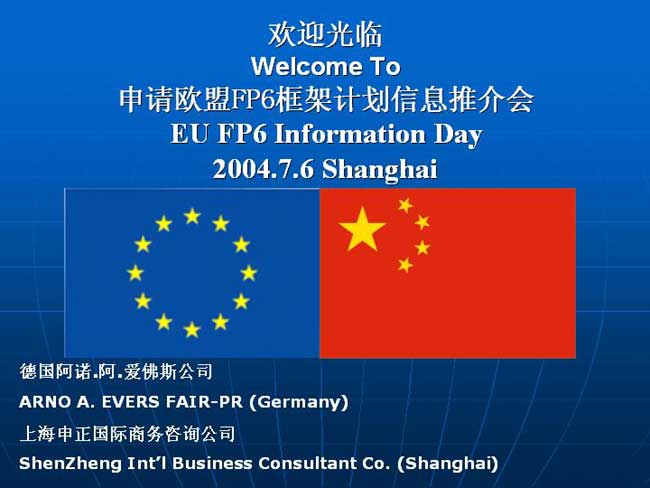| The European Union is planning to offer some 50
million euro (US$ 60 million) this year in annual aid to support
Chinese researchers who want to participate in international scientific
projects, a senior official with the EU said yesterday in the city.
The donation is a five-fold increase over last year.
The annual grant is part of the EU’s Sixth Framework Program
– a global program to encourage multinational science and
technology projects – which includes nearly 600 million euro
to support non-EU countries from 2002 to 2006, with a special focus
on developing countries such as China.
“We are here to find possibilities of collaborative scientific
projects which will benefit both the EU and China,” Jurgen
Sanders, a first counsellor of science and technology from a delegation
of the European Commission in China, said yesterday at a promotion
meeting in Shanghai.
Given the proper purposes, Chinese research organizations, both
state-owned and private, can apply to get sponsorship from the EU
in nine fields of collaborative research.
Among them: life sciences including genomics and health study, information
technology, nanotechnology |
|
such as the development of intelligent
materials whose substance exists at one billionth a meter, food
quality and safety, aeronautics and space exploration.
However, it’s not easy to win such sponsorship because each
supported scientific project must be multinational and include at
least three partners from different EU member states and associate
states.
Naturally, the intellectual property rights, once any project is
completed, will be shared among its participating organizations.
The application is a three-step approach: to find relevant partners
in Europe; to prepare a project proposal; and to inform the Chinese
Ministry of Science and Technology.
EU officials said they will show preference to projects that aim
to solve realistic problems in developing countries such as those
related to environmental protection.
The institute of structural engineering and disaster reduction at
Tongji University is one of the Chinese organizations supported
by the EU to participate in a multinational research project in
natural disaster reduction. |


